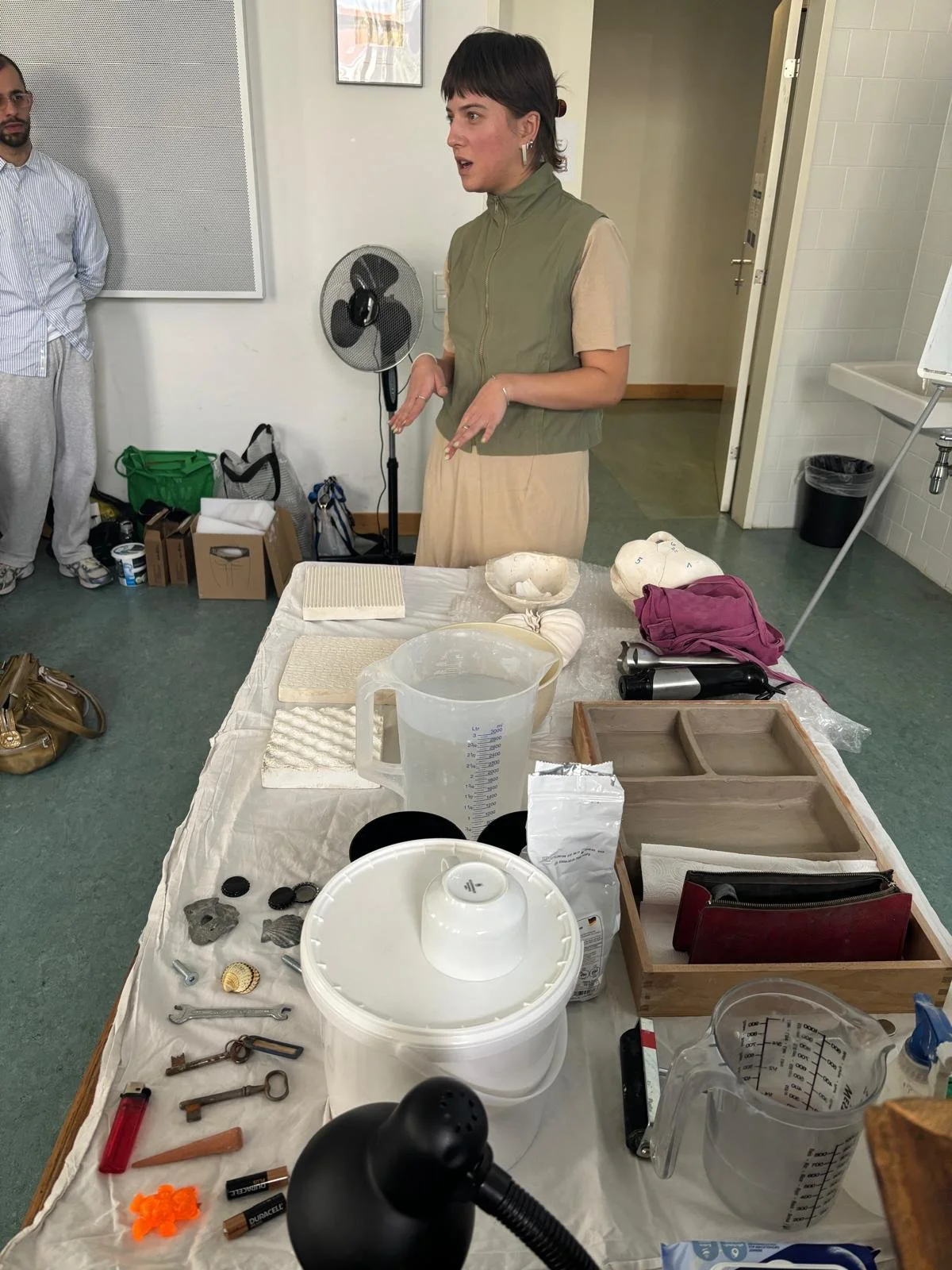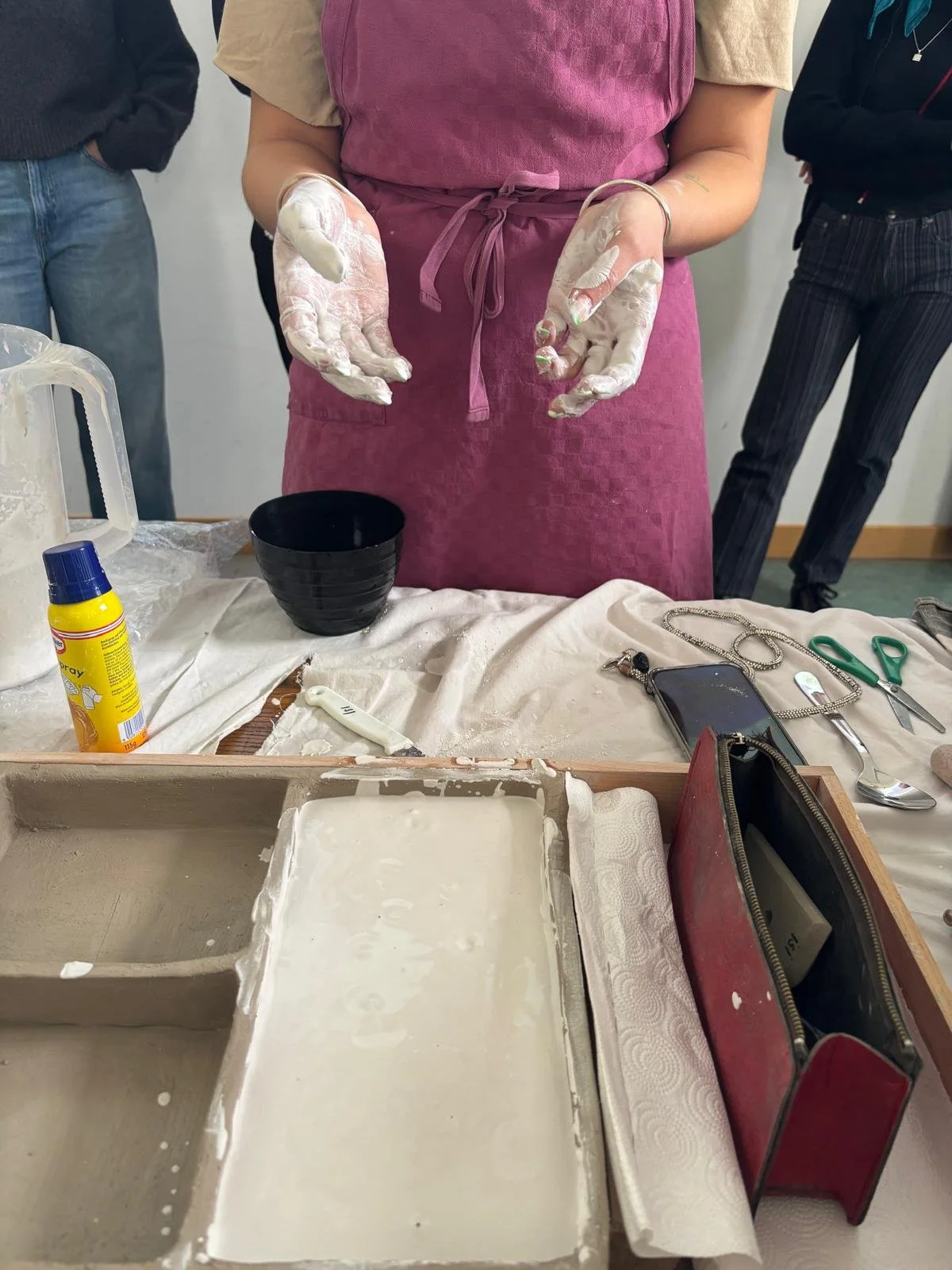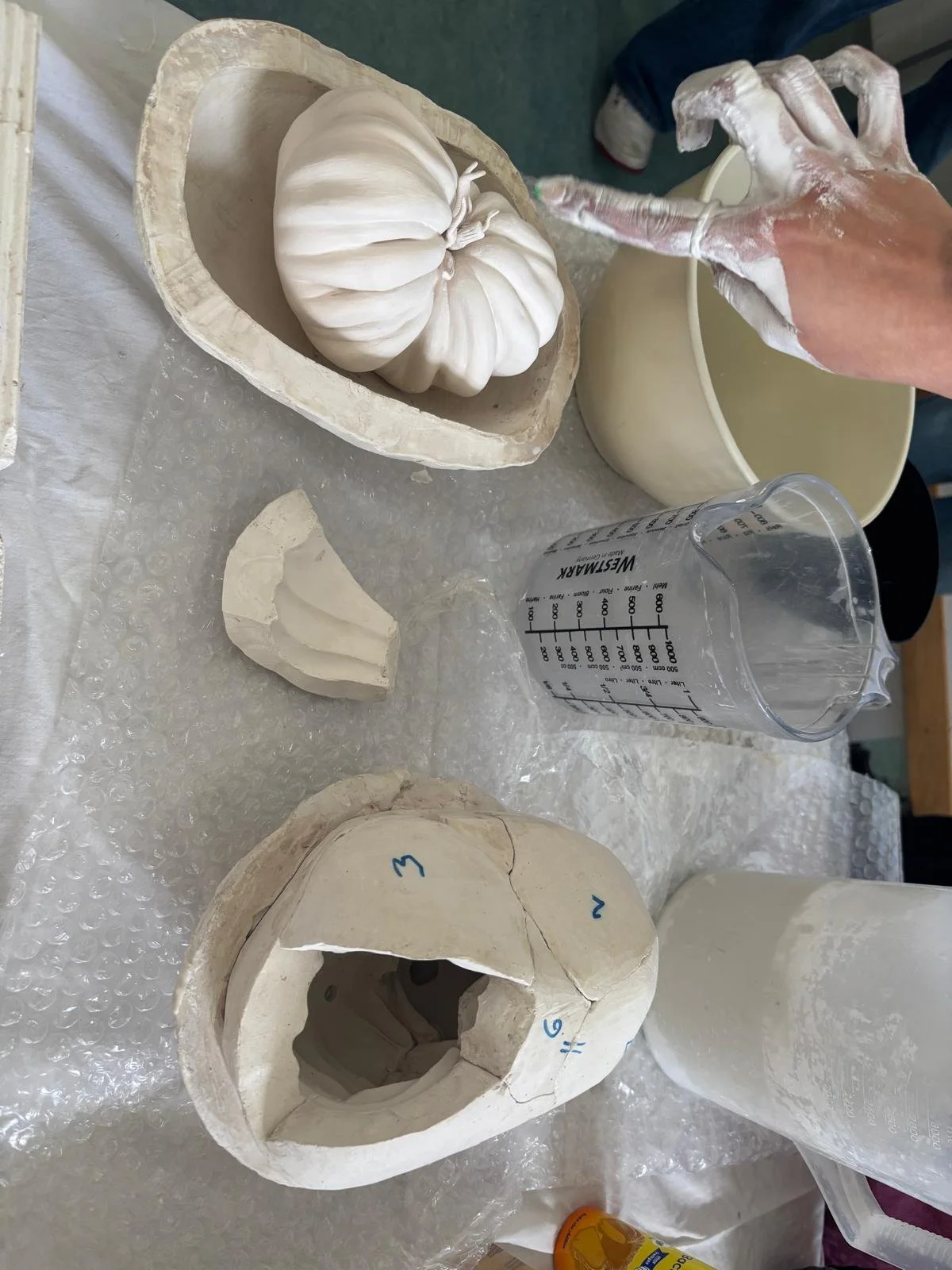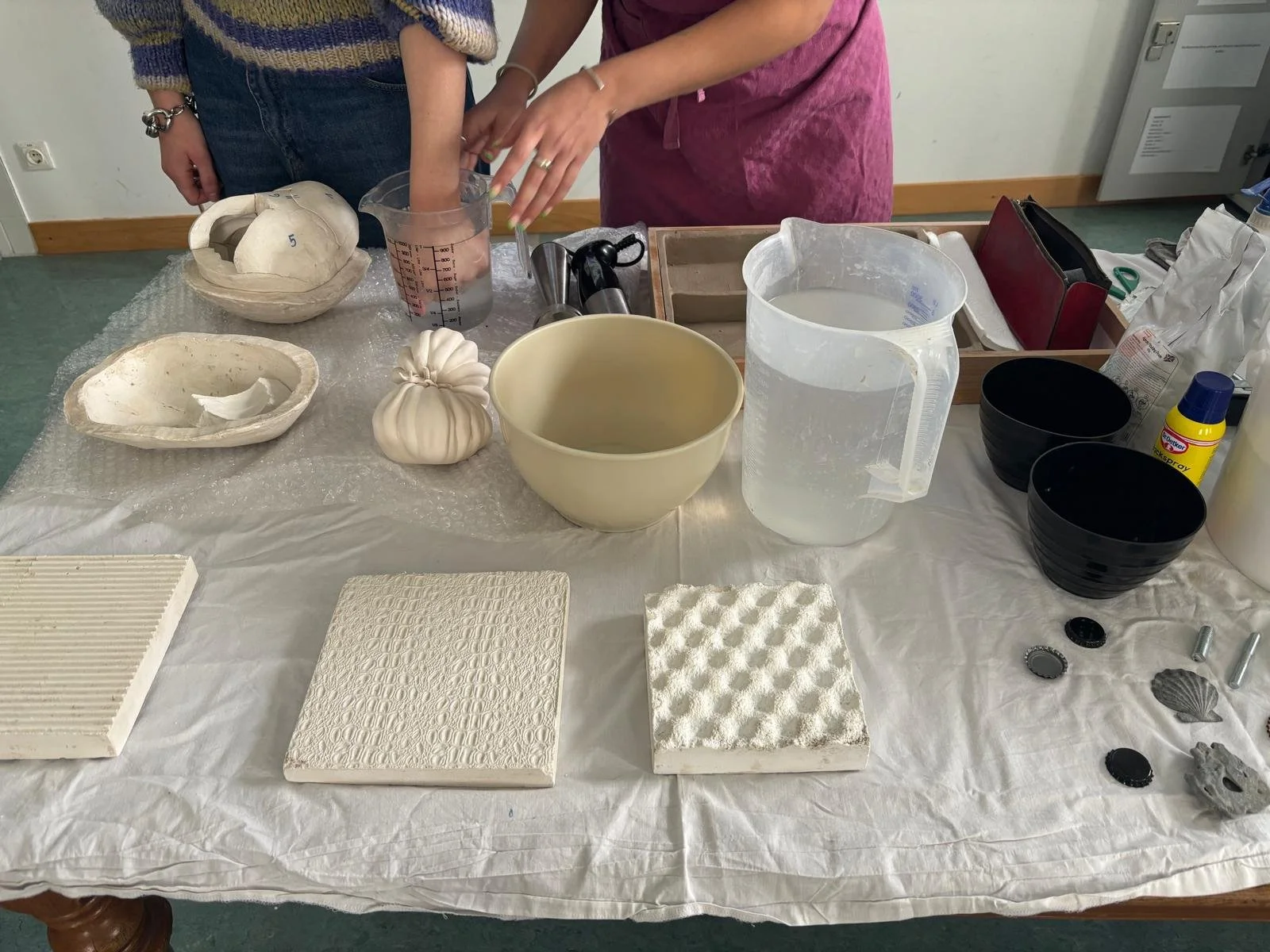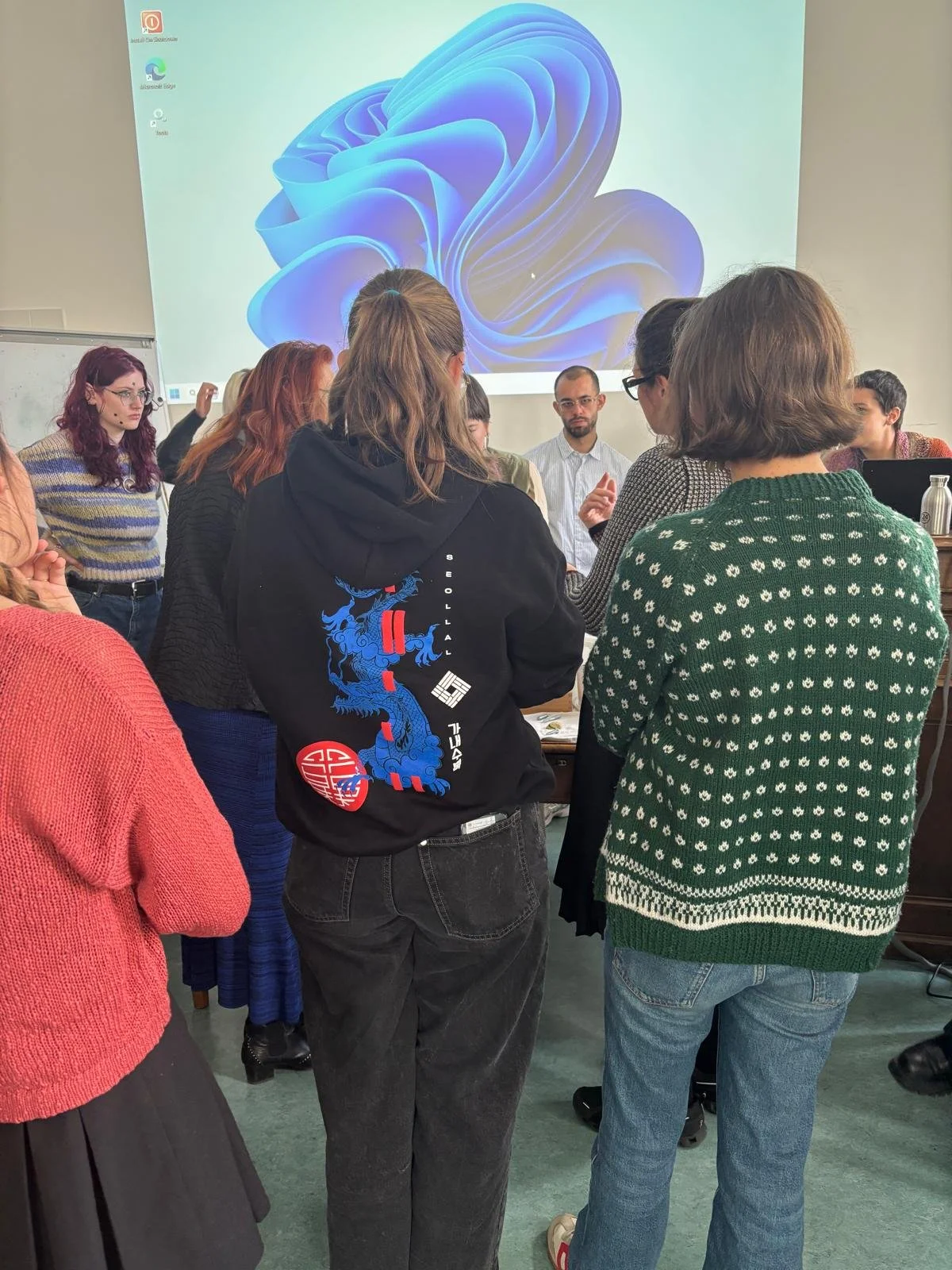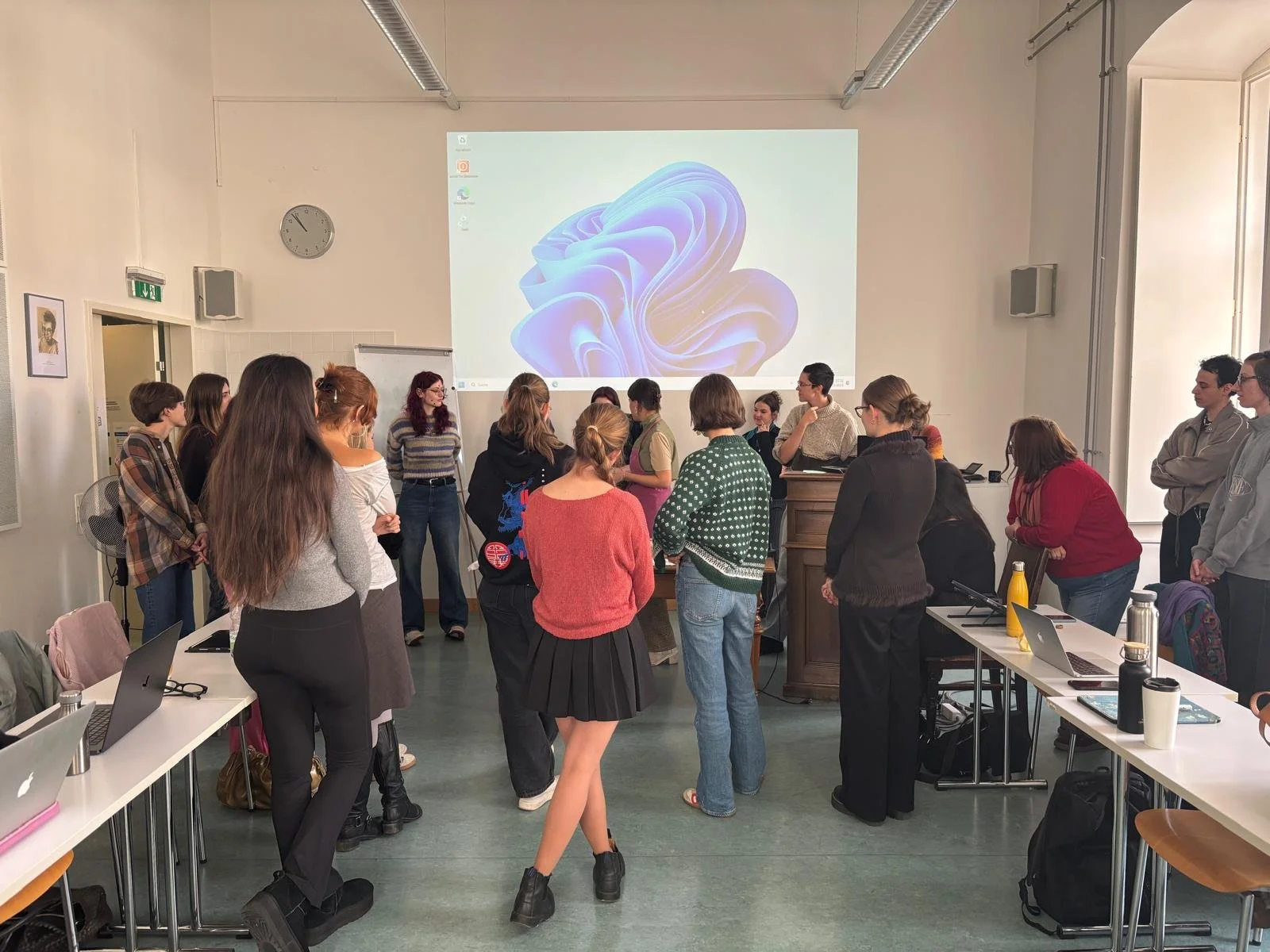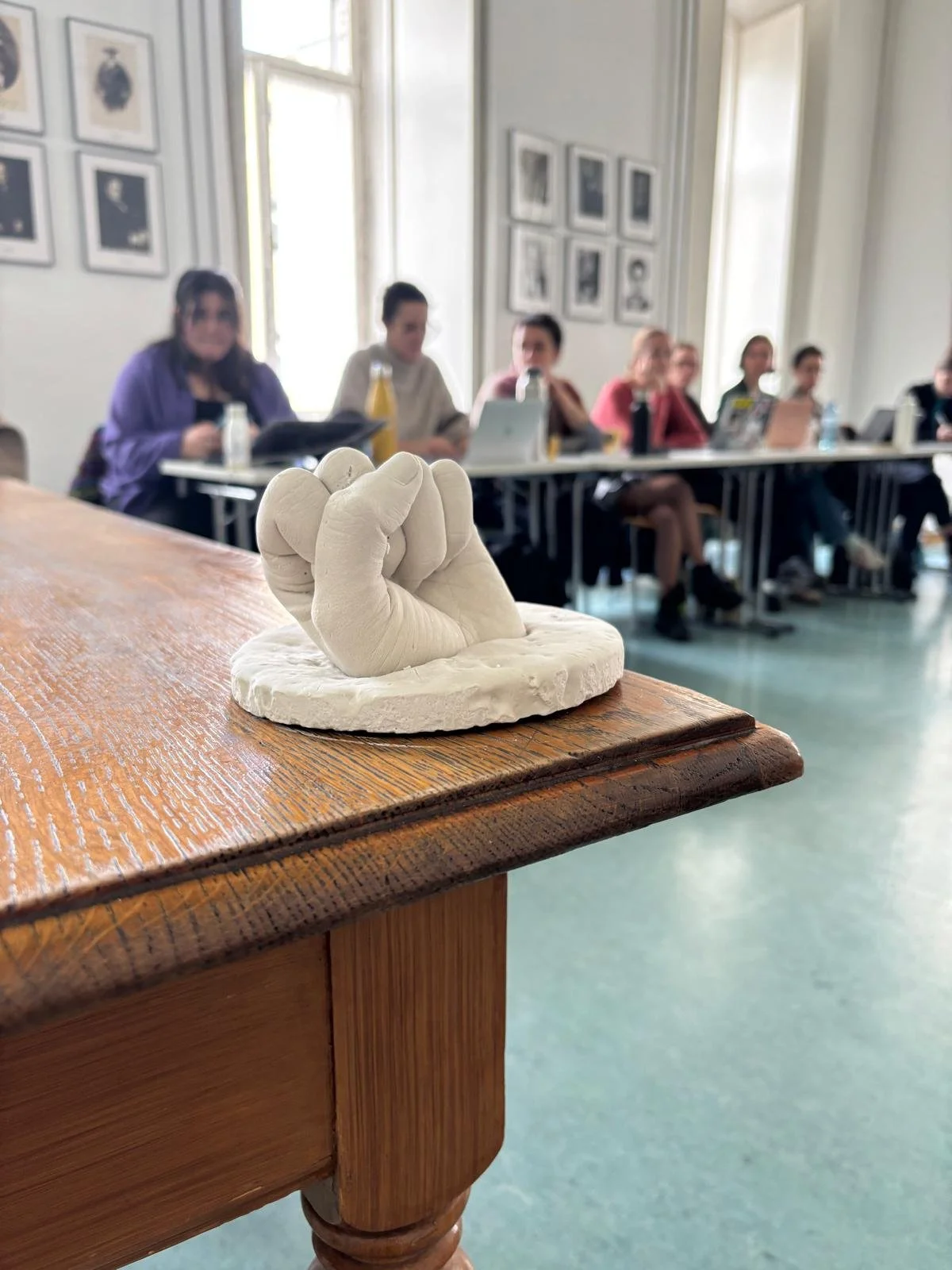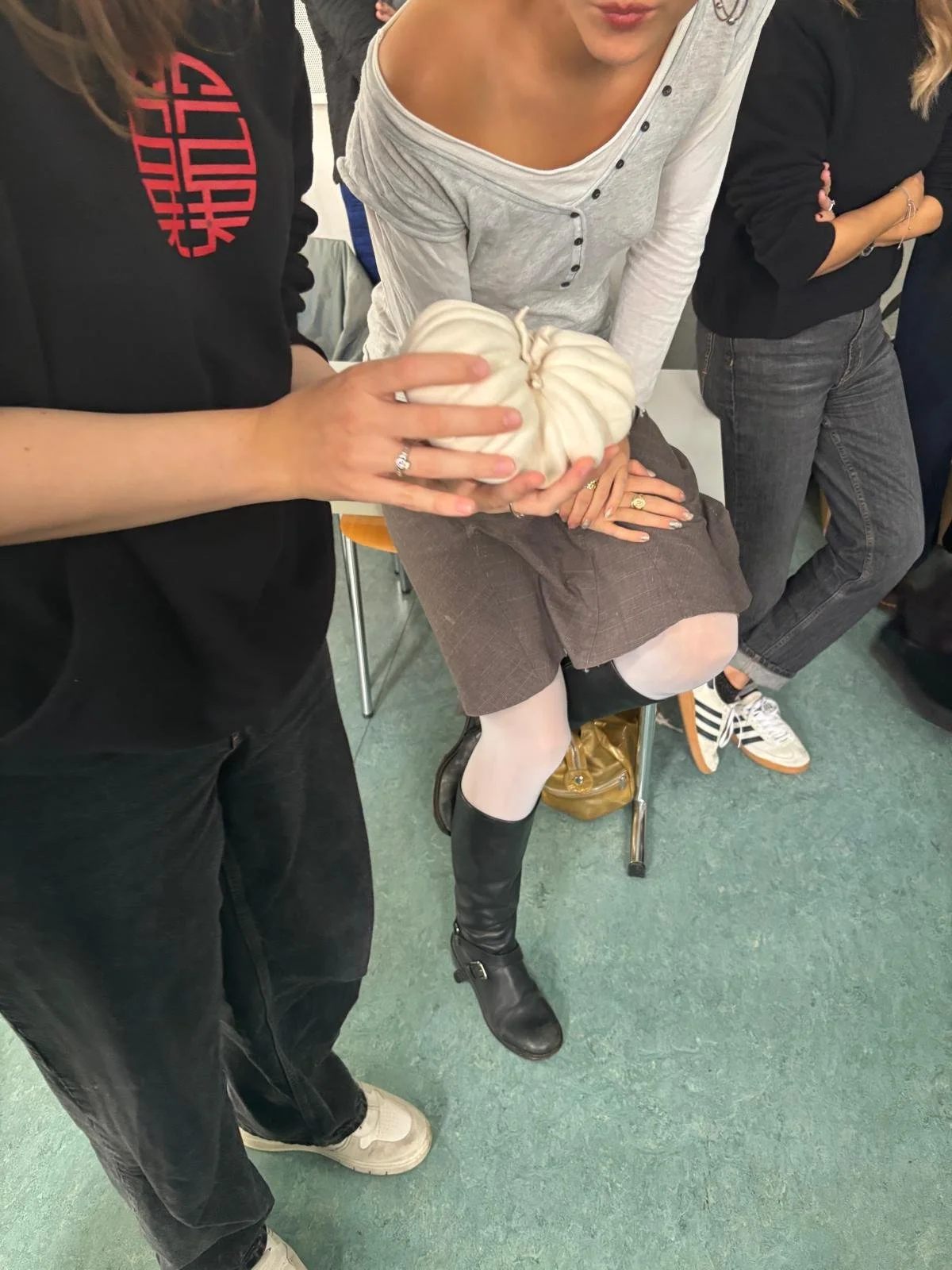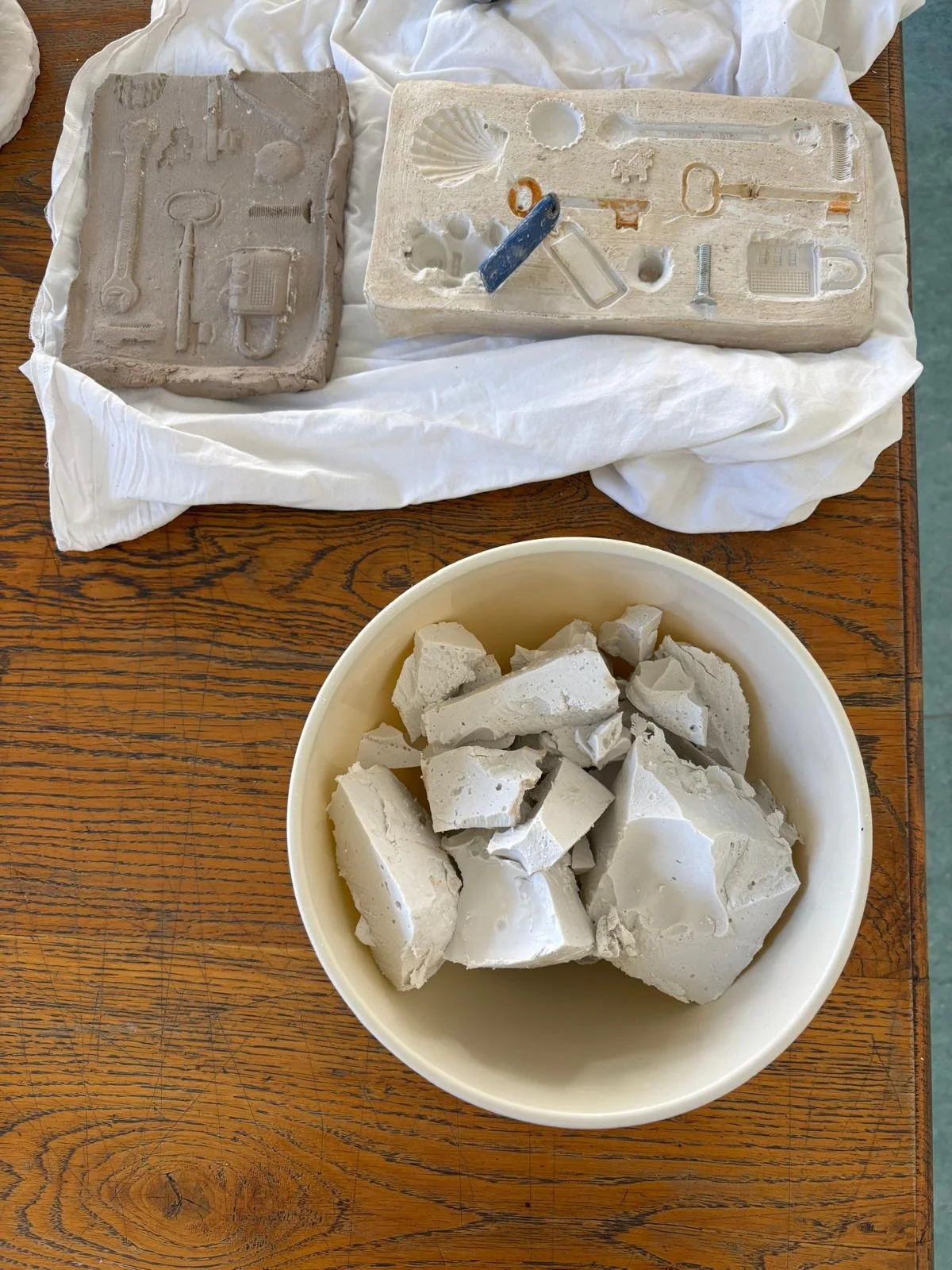Hands-On Histories: Learning about the Art and Ethics of Plaster Casting
In one of the first sessions of Noémie Étienne’s seminar “Materialien und Maske: Gedächtnis und Gesichter in Wiener Sammlungen”, students had the opportunity to experience the art of plaster casting firsthand.
Artist Isabelle Orsini und Rosenberg joined the class to demonstrate the process and guide students in creating their own casts — a truly hands-on introduction to the semester’s theme.
One student volunteered to have their hand cast, giving everyone a tangible sense of what it means to reproduce a body part in material form. The session opened up important ethical and philosophical questions that lie at the heart of the seminar: Who owns the cast? The artist who made it? The student whose hand was reproduced? Or the institution that commissioned the work?
Through this exercise — and a staged “power play” led by Noémie Étienne — students reflected not only on questions of authorship and ownership, but also on the bodily and emotional experience of being cast. These reflections connect directly to the seminar’s broader focus on the histories of life and death masks in Viennese collections, many of which were created under sensitive or coercive circumstances, including colonial and National Socialist contexts.
The session with Isabelle offered a vivid and critical entry point into the material, artistic, and ethical dimensions of plaster casting — and a powerful start to the semester.
It also prompted a broader question that continues to guide our work:
What do we learn differently when we do and feel art and history — rather than only study them?

